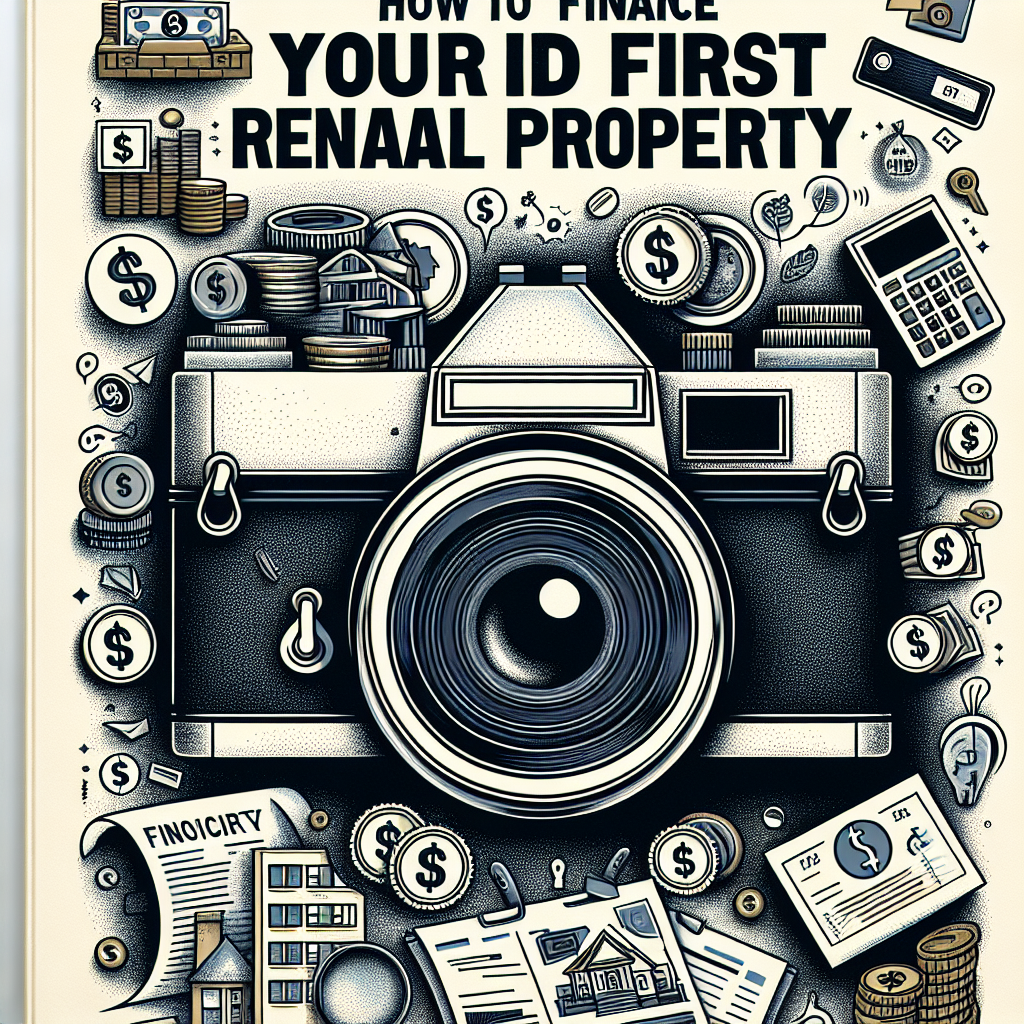Understanding Financing Options
Traditional Mortgages
When I first decided to dip my toes into rental properties, the first stop on my journey was understanding traditional mortgages. These are the kind of home loans you’re probably familiar with—secured by the property itself and based on your creditworthiness. Most banks or credit unions offer these mortgages, and you can choose from fixed or adjustable rates depending on your comfort level with risk.
What I learned is that the down payment can vary widely, generally ranging from 3% to 20%. If you’re a first-time homebuyer, you might even qualify for special programs that reduce this requirement. Just make sure you’re ready for the monthly payments and any hidden fees that might pop up out of nowhere!
Keep in mind that qualifying for a traditional mortgage means good credit is king. I used to think credit scores were just a fancy number, but trust me—if you want to finance that dream rental property, getting your credit in shape is essential. So, do your homework before you apply!
Alternative Financing Sources
If traditional mortgages aren’t quite your style, don’t sweat it! There are tons of alternative financing options available. I’ve seen folks use hard money loans or private investors to scoop up properties quickly. These might come with higher interest rates, but they can be a lifesaver when you find a deal you don’t want to pass up.
Another option I found intriguing is crowdfunding platforms, where multiple investors pool money to fund property purchases. It’s like owning a pizza—everyone gets a slice. You don’t need to have a boatload of cash upfront, but of course, there are risks involved, so you need to do due diligence.
Whichever route you choose, just make sure you fully understand the terms and conditions. I learned the hard way that a little fine print can turn into a big headache down the line!
Building Your Personal Financial Plan
Before diving headfirst into buying a rental property, I put together a solid personal financial plan. It was sort of like creating a roadmap to keep me on track. I detailed my budget—income, expenses, savings goals—and made sure I had an emergency fund set aside. You never know when your property will need repairs or if a tenant might flake out on rent.
It’s also crucial to set realistic projections for what you can afford regarding monthly mortgage payments and ongoing maintenance costs. I didn’t just want a property that looked good on paper; I wanted one that would be financially viable in the long run. So, keep it real with yourself!
Lastly, consider consulting with a financial advisor. They can help tailor your plan based on your personal situation and investment goals. A little expert advice can go a long way, trust me on that one!
Assessing Property Value
Comparative Market Analysis
When I first got serious about acquiring my rental property, I realized I needed to do a Comparative Market Analysis (CMA). It’s a fancy term, but all it really means is figuring out what similar properties in the area are selling or renting for. This will help you determine a fair price to consider.
To conduct a CMA, I checked recent sales data, looked into neighborhood trends, and really paid attention to what amenities were available nearby. This process allowed me to understand the competitive landscape, which is key if you want to dot your I’s and cross your T’s before making an offer.
Remember, the more thorough your analysis, the less likely you are to overpay for a property. The last thing you want is to find out later that your investment isn’t worth what you thought!
Property Inspection
Before I signed on the dotted line, I made it non-negotiable to have a thorough property inspection done. It’s super important to uncover any potential issues that could lead to expensive repairs later. You’re about to dive into this investment, so shelling out for an inspection is like getting insurance against potential headaches.
I’ve learned the hard way that skipping this step can lead to costly consequences down the line. Inspectors can catch things you might miss, from roof problems to plumbing issues. You wouldn’t want to end up pouring money into repairs instead of cash flow from your tenants!
If the inspection flags any red flags, you might be able to negotiate the price down or at least ask the seller to make necessary repairs before closing. So, trust me—never overlook this step in the process!
Future Value Consideration
Lastly, I learned it’s essential to consider the future value of the property. It’s all about potential appreciation. While it’s tough to predict housing market trends, I looked for areas poised for growth—like neighborhoods with new developments, schools, or public transit nearby. These are prime locations to snag before everyone catches on!

https://Credit411USA.com
I also took a peek at planned infrastructure improvements or business developments. They could significantly elevate property values in the area. Think of it as turning your property into a goldmine over time!
Always keep in mind that real estate is generally a long game. Patience is key, and a property that looks like a solid investment today could turn into an even bigger jackpot down the line!
Your Closing Strategy
Navigating Closing Costs
When I was nearing the end of my property-buying journey, I was shocked by the closing costs. They can sneak up on you if you’re not careful! Closing typically includes title insurance, appraisal fees, and any other miscellaneous charges involved with finalizing the sale.
To prepare myself, I made sure to ask my lender for a breakdown of all these fees upfront. This helped me avoid surprises at the last minute. A good rule of thumb is to budget about 2% to 5% of the property’s price for closing costs, but you can always negotiate some with the seller if you can.
Getting my ducks in a row early on made the closing process a lot smoother. It’s kind of like packing for vacation—be prepared and you’ll have a lot more fun!
Final Walkthrough
Just before the closing date, I made it a point to do a final walkthrough of the property. This is your last chance to make sure everything is still in good shape and that no new issues have popped up since the inspection.
During this walkthrough, I kept a checklist handy based on what I found during the inspection. If something seemed off—like a plumbing issue that suddenly appeared—I knew it was time to address those concerns before signing. Remember, you want your new property to be a source of pride, not a constant headache!
So, take the time for this final check! It gives you peace of mind knowing that once you close, it’s all smooth sailing ahead!
Closing the Deal
Finally, it was time to close the deal. This is the moment you’ve been waiting for, and trust me, it feels amazing to hand over that check and get the keys to your first rental property. But before you get too carried away with the excitement, make sure to thoroughly read everything you’re signing—just to avoid any nasty surprises.
Your lender will walk you through the closing documents, outlining all terms clearly. Don’t hesitate to ask questions! It’s your future, after all.
Once it’s all signed, sealed, and delivered, you’ll officially be a landlord. Cheers to new beginnings and all the possibilities ahead!
FAQs
1. What type of loan is best for my first rental property?
It really depends on your financial situation. Traditional mortgages are great if you have good credit and can afford a decent down payment. But if you’re looking for quicker funding, hard money loans or private investors can get you started faster.
2. How do I know if a rental property is worth the price?
Conducting a Comparative Market Analysis (CMA) will help you figure out what similar properties are selling for. Additionally, having a property inspection can uncover any hidden issues that might affect the property’s value.
3. What costs should I consider beyond the mortgage?
Be prepared for ongoing costs like property taxes, maintenance, insurance, and, of course, those sneaky closing costs. Creating a detailed financial plan will help you stay ahead of any additional expenses.
4. Is hiring a property manager worth it?
If you plan on being hands-off with your investment or if the thought of managing tenants makes you nervous, a property manager can be a worthwhile investment. They can handle tenant relations and upkeep, leaving you to enjoy the benefits without the stress!
5. How long should I keep my rental property?
Real estate typically benefits from a long-term investment strategy. If you purchase wisely and take care of your property, holding onto it for several years can lead to significant appreciation in value.

https://Credit411USA.com

